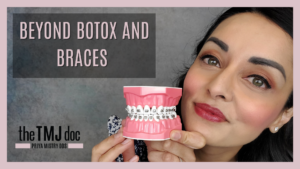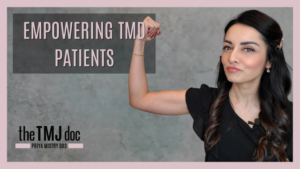Trauma to the head, neck, or jaw can have lasting effects—many of which are not immediately obvious. At TMJ Doc in Vancouver, WA, patients often seek help months or even years after an accident, unaware that the discomfort they’re experiencing may be linked to an earlier injury.
Whether it’s a fall, car accident, sports injury, or blow to the face, trauma can alter the alignment and function of the temporomandibular joints (TMJs), leading to a range of symptoms that disrupt everyday life.
How Trauma Affects the TMJs
The TMJs are delicate, highly active joints that rely on proper alignment and muscle balance to function smoothly. When trauma occurs, the force can:
- Displace the jaw or affect the joint’s natural position
- Strain or tear muscles, ligaments, and connective tissues
- Lead to inflammation or internal joint damage
- Alter the way teeth come together (the bite)
Even if no bones are broken, the impact may trigger a gradual shift in how the jaw moves and feels. In many cases, symptoms of TMJ dysfunction develop slowly, making it easy to overlook the connection to a past injury.
Common Symptoms Following Jaw or Head Trauma
TMJ-related symptoms following trauma can vary widely and may include:
- Jaw pain, stiffness, or limited movement
- Clicking, popping, or locking of the jaw
- Facial pain or tension
- Chronic headaches or migraines
- Neck and shoulder discomfort
- Tooth sensitivity or changes in bite
In some cases, trauma may also lead to teeth grinding or clenching—especially during sleep—as the body adapts to changes in the bite or joint function.
Identifying Trauma-Related TMJ Dysfunction
Pinpointing trauma as the cause of TMJ issues requires a thorough evaluation of the patient’s history, symptoms, and physical function. At TMJ Doc in Vancouver, each case is carefully assessed to determine whether an old injury may be contributing to current jaw problems.
Advanced diagnostics and a whole-body approach allow for a better understanding of how the jaw, muscles, and nervous system have been affected. This ensures treatment is not just symptom-focused but addresses the underlying cause of dysfunction.
Long-Term Relief Through Personalized Care
Treating trauma-related TMJ issues involves more than pain relief. Therapy plans may include customized oral appliances to restore balance in the jaw, targeted muscle therapy, and strategies to reduce strain and improve joint stability over time.
With the right care, many patients are able to regain comfortable movement, reduce pain, and prevent further joint damage.
Recovering from Trauma? TMJ Pain May Be the Missing Link
If you’ve experienced an injury and are now dealing with jaw pain, headaches, or unexplained tension, TMJ Doc in Vancouver, WA can help uncover the connection. Schedule a consultation today to begin personalized care and lasting recovery.







